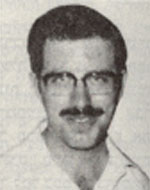Gross, Shmuel
Son of Yosef and Roza. He was born on April 6, 1936 in the city of Tarnowac, Poland. A soft child was at the outbreak of World War II; The holocaust clouded the dawn of his childhood and the age of three wandering and suffering. Among the many Jewish families who felt safe in the Russian territory were his parents, who had wandered and wandered with their young children for a long time without shelter and hunger and fear. On the way, the parents became ill with typhoid fever and since there was no chance of recovery, Shmuel, his brother, and sister were added to the transit camp in Tehran in Persia and from there transferred to Israel (in the spring of 1943). After a period of transition in several places, Shmuel found refuge in Kibbutz Mizra and soon became absorbed in the new life. In 1946, a letter arrived from his parents, who recovered from their illness, arrived at a refugee camp in Germany and searched for their children; After efforts by the kibbutz and the children’s letter to the High Commissioner, the parents were granted an entry visa – and the family circle was completed again. The parents lived in one of the krayot near Haifa, but it was not long before his mother was shot by Arabs on her way to Wadi Rushmiya. Shmuel, meanwhile, completed his studies at the kibbutz educational institution and when his relatives tried to persuade him to move to Haifa, his father replied that his home was Kibbutz Mizra. He was simple in his manner, silent, willing to help others-and all of this was loved by his friends and acquaintances. When he became a member of the kibbutz he became a man of work and every business was devoted, punctual and responsible – and out of affection. But above all he loved the work of the land and for a short time began to control the tractor. He was drafted into the IDF in August 1952, where he completed a course of symbols of sabotage, but when he was sent to an officers’ course he refused his longing for his kibbutz, his fields and his tractor. He was brought to rest in the cemetery in his farm, and Kibbutz Mizra took out a pamphlet called “Yankele and Shmuelik” in memory of him and the memory of Yaakov Engelmayer z “l. His memory was included in the booklet Tevet 5717 of “Pages” (information of the Department for the Immigration of Children and Youth published by the Jewish Agency in Jerusalem)
